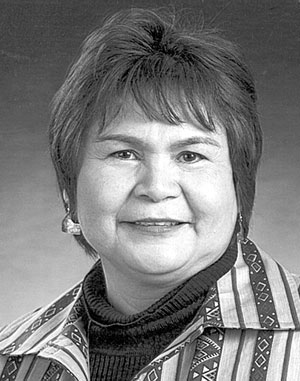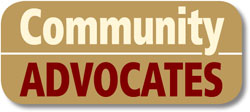While lawyer Susan Hare’s practice may be based in M’Chigeeng First Nation on Lake Huron’s Manitoulin Island, all of Ontario is her community, she told Law Times while recently travelling to represent a client in a different part of the province.


From the first day she became a lawyer in the mid-1990s, Hare has been practising in her community, the result, she says, of a very clear vision from the time she was in law school.
“The communities where I live, I’ve always worked to develop our community and the native community at large, so this was a natural fit to go back and practise where I felt I was needed,” she says.
As a sole practitioner carrying out a general practice, Hare does everything from wills and estates to criminal law, to Children’s Aid Society work as well as representing First Nations in various capacities, ranging from agreements, employment personnel matters and litigation to aboriginal treaty, land claims, and hunting rights.
The importance of having a lawyer or small firm, as opposed to a large firm, serving a particular community, depends on the lawyer or the firm, says Hare, but she adds, “for myself, because I am an Aboriginal person and I’m from that community, I have a lot more basic understanding of how things are done and who people are and what the histories of people are in the community, whereas someone from the outside, they have to learn that.
“I have that knowledge, so its much easier for me to represent them and it cuts short a lot of the research and interviewing that would normally be a part of a lawyer’s work who doesn’t know the community.”
Hare, who was also recently elected as a bencher of the Law Society of Upper Canada, adds that there is general support from band members who are proud to have a lawyer working in the community who is also from the area. Members of the community let people know that there is a lawyer practising nearby and will also offer to place summer students in the firm.
However, in Hare’s experience, one of the biggest challenges associated with being a sole practitioner practising law in a small community is to try to get other lawyers to join her firm, as well as hiring trained legal staff.
“I’ve got tons of work, I’ve always had tons of work, and I’m only one person,” she says.
As a result, Hare always takes on articling students in hopes that one or two will join her practice, which a few have done over the years.
“I guess that’s the challenge . . . I could do a lot more if I had more lawyers to come and work with me,” she says.
“It’s hard in a small community to lure lawyers there, or anybody else I guess . . . they have a hard time luring doctors to small communities as well,” she points out.
Hiring staff to work in the law office can also be an issue, as within a small community, there are a limited number of people who are interested in, or trained to work in the legal field. Hare says she has trained most of the staff she has and has had in the past.
Part of the problem in attracting people to a small community, says Hare, is that they either have to be from the area or have a personal connection to the area, such as a spouse or partner. She says that while many of the lawyers and articling students who are interested in working with her are Aboriginal, they are usually hoping to eventually set up their practices in their own communities, as Hare did. While the community wouldn’t be able to handle another 20 lawyers, Hare says she does expect the number of lawyers in the area to grow gradually.
In spite of these challenges, some of the most rewarding aspects of the job, she says, are when certain clients, who may be debilitated in some way, see her as a protector of their rights or their person, and when she is able to assist the elders in any of the communities to overcome a problem, because they face barriers of language and oppression.
“Most of the time, they don’t even think they can fight, they are still at that frame of mind of oppression,” says Hare.
As a lawyer, it is important that the community knows who you are, not only from a business point of view, says Hare, but also to help and to be involved, something Hare says she has always believed in. As she is visible to young people in the community, she adds that maybe one will become a lawyer as a result.
“You’ve always got to help your community, you’ve got to do things and you’re part of it, you’re not separate from everybody. We’re a collective body of people as aboriginal people, and so it’s important to be out there and show [that] I am too,” says Hare.


 From the first day she became a lawyer in the mid-1990s, Hare has been practising in her community, the result, she says, of a very clear vision from the time she was in law school.
From the first day she became a lawyer in the mid-1990s, Hare has been practising in her community, the result, she says, of a very clear vision from the time she was in law school.